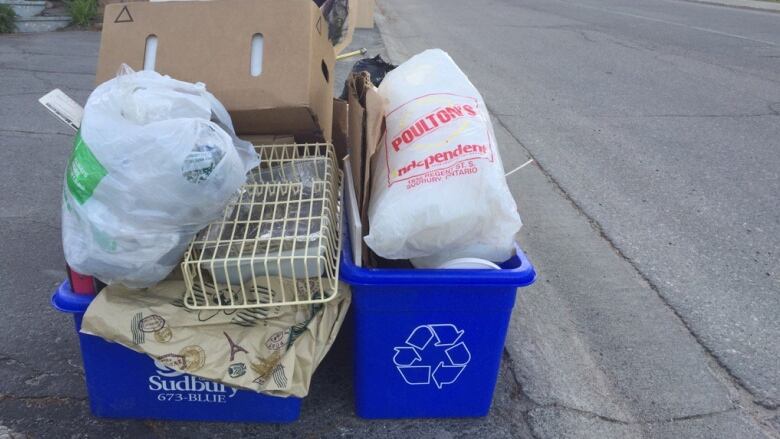Poor market for recycled products means less money for waste diversion programs
Did you know? If you wash out your recycling containers, the city gets more money


The stuff you throw into the blue box isn't as valuable as it once was and that'sputting the squeeze on the recycling programs in cities like Greater Sudbury.
Manufacturing companies are paying less and less for paper, plastics and aluminum, driving up costs for cities.
The city's recycling manager, Renee Brownlee, says thatwith no market for glass, it costs taxpayers about $50,000 per year to recycle jars and bottles.
Joanne St. Godard from the Recycling Council of Ontario said one solution is to make companies pay for what happens to their packaging after their customers throw it out.
That means "layering on the actual cost of end-of-life management onto the producer," she said.
"If they have to bear that cost, then they'll be forced to be educated and they'll be interested in reducing that cost."
That is one of the ideas in the new Waste Free Ontario Act legislation that is currently working its way through the approval process at Queen's Park.
'It costs us as taxpayers'
In the meantime, municipalities like Greater Sudbury are dealing with the realities of less being paid for recycled items.
For example, a metric tonne of newspaper has dropped by $50, and a tonne of aluminum cans is down $600.
Brownleesaid companies will pay them even less if the paper is mixed with plastic or the containers aren't rinsed out.
"It costs us as taxpayers, because the more revenue that we can generate from the blue box program, the more we can subsidize the cost of running that program off the tax base."
Last year, Greater Sudbury sold blue box contents for about $940,000, which doesn't even cover half the cost of processing recycling an important program that keeps some waste "out of our landfill sites and extending that landfill site life," Brownleesaid.
"That's the business we're in, waste diversion."












_(720p).jpg)


 OFFICIAL HD MUSIC VIDEO.jpg)
.jpg)



























































































